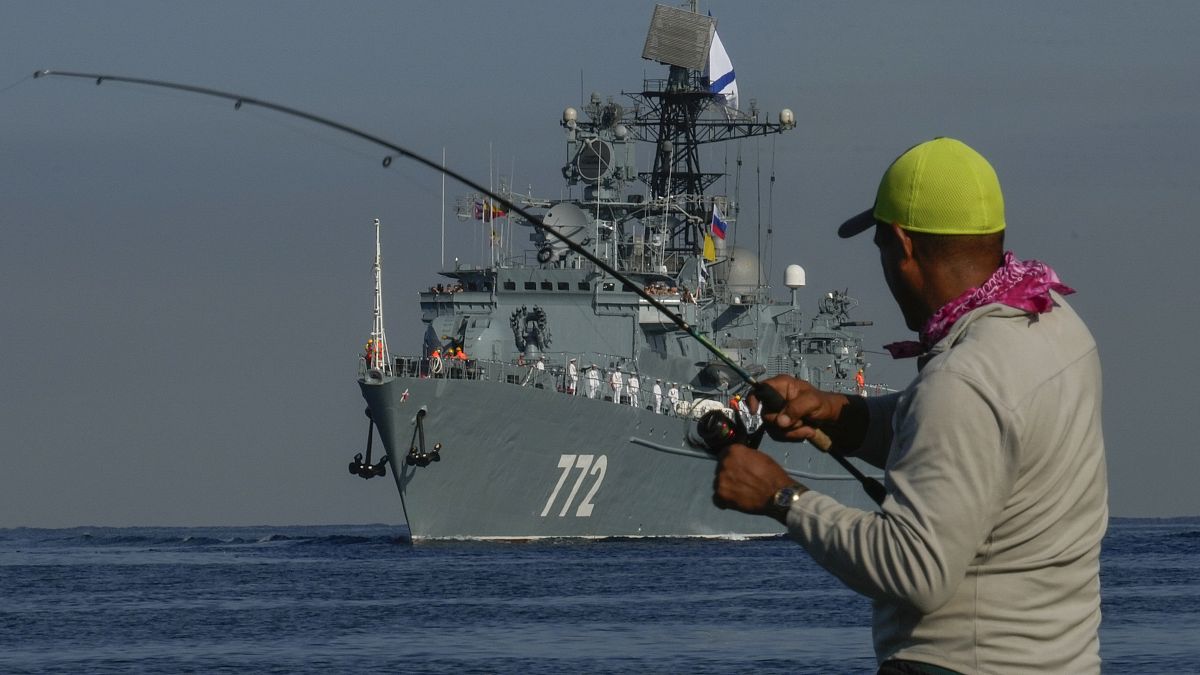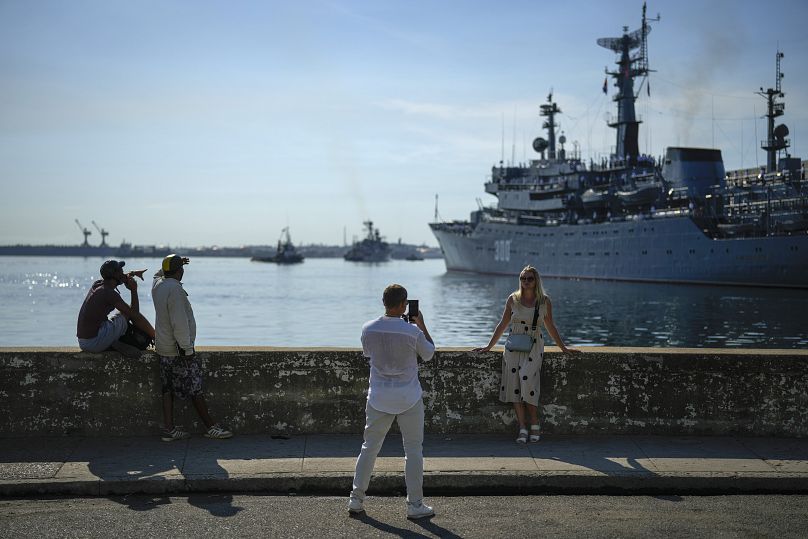
Three warships from Russia’s Baltic Fleet have arrived in Cuban waters, Moscow’s second such maritime voyage in as many months in a reflection of deepening ties between Moscow and Havana.
The naval group, consisting of a training ship, patrol frigate and refuelling tanker, are expected to remain docked in port in Havana until August 30.
The arrival of the vessels comes just weeks after another squadron of Russian warships, including a powerful nuclear-powered submarine, visited Cuba as part of military exercises in mid-June.
American officials closely tracked those drills, saying that the four-vessel group posed no threat. At the time, experts described the warships’ Caribbean tour as a symbolic show of strength in response to continued US and Western support for Ukraine.
Cuban defence officials announced the latest port call earlier this week, calling the arrival of the Russian warships a “historical practice” and show of “friendship and collaboration.”
But neither Havana nor Moscow elaborated on the purpose of this latest deployment.
The docking of the flotilla has sparked a flurry of excitement among the general public, with Cubans strolling the port avenue to get a better glimpse of the warships on Saturday and authorities saying interested visitors would be admitted on board the Russian training ship, called Smolny, on Sunday and Monday.
“It’s a friendly thing. A bond between Russia and the Cubans,” said 29-year-old onlooker Maydelis Perez. “I’m taking a family outing.”
Russia is a longtime ally of Venezuela and Cuba, and its warships and aircraft have periodically made forays into the Caribbean and docked in Havana.

Though Cuba is not a key player in Russian foreign policy, experts say that Russia sees Cuba as strategically important given its continued clout among developing nations.
Cuba and Russia, both subject to severe US economic sanctions, have strengthened their political and economic ties in recent years, particularly as Moscow aims to boost diplomatic support for its war in Ukraine and Havana seeks whatever economic assistance it can get.
Cuba has consistently abstained on UN resolutions on the invasion of Ukraine and avoided criticism of Moscow’s war. Russia has sold significant volumes of oil to Cuba, which has struggled under Washington’s economic embargo, put into place by then President John F. Kennedy in 1962.





